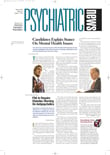In an effort to reverse a decline in the number of young researchers, the National Institutes of Health (NIH) is making future medical researchers an offer it hopes they can’t refuse.
In September the federal agency started to accept applications for its Loan Repayment Programs through which it will repay up to $35,000 in educational debt owed by health professionals who pledge to pursue careers in clinical, pediatric, contraception and infertility, or health disparities research.
The programs also cover “federal and state tax liabilities,” according to NIH.
The conditions NIH places on the program participants are that they must have completed a doctoral-degree program and be devoting at least 50 percent of their time to research funded by a nonprofit organization or federal, state, or local government agency. In addition, participants must have accumulated education-loan debt “equal to or exceeding 20 percent of their institutional base salary.”
The program is limited to citizens and permanent residents of the United States, and full-time federal government employees are not eligible.
NIH offers five programs within the overall loan-repayment program. They are the Clinical Research Loan Repayment Program (LRP), Clinical Research for Individuals From Disadvantaged Backgrounds LRP, Contraception and Infertility Research LRP, Health Disparities Research LRP, and Pediatric Research LRP.
Ruth Kirschstein, M.D., senior advisor to the NIH director, described that repayment programs as “one of our nation’s most significant efforts to ensure a solid foundation of clinical, pediatric, and health-disparities research professionals for the next generation. These programs provide a means for health professionals to launch their research careers unfettered by the burden of student-loan debt.”
Darrel Regier, M.D., director of the American Psychiatric Institute for Research and Education and APA’s Division of Research, also finds the program to be a valuable tool for recruiting the next generation of researchers.
“Given the dwindling number of qualified psychiatrists going into research after they complete their clinical training,” he told Psychiatric News, “this program will reduce some of the economic pressures of repaying student loans for psychiatrists who choose to go into relatively low-paying research fellowship positions.”
Completed applications for 2004 awards must be submitted online no later than 5 p.m. on December 31.
Applications and additional information about the NIH Loan Repayment Programs are posted on the Web at www.lrp.nih.gov and available by phone through the LRP Helpline at (866) 849-4047. ▪
